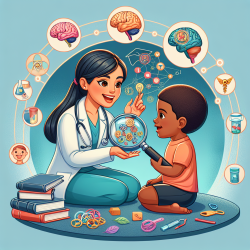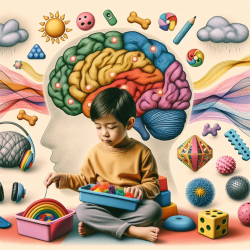As a Special Education Director with a vested interest in the continuous improvement of therapeutic approaches for students, I've encountered an enlightening piece of research that underscores the effectiveness of group therapy sessions for dysfluent school-aged children. This research, presented in "Dysfluency Groups with School-Aged Children," offers a comprehensive look into the methodologies and outcomes of implementing group therapy sessions as opposed to traditional one-on-one interventions. The findings of this study are particularly relevant for practitioners seeking to refine their skills and achieve better outcomes for their students.
The challenge of carry-over in speech therapy is well-documented, with many children struggling to apply the fluency achieved in one-on-one therapy sessions to more natural settings such as home and school. This gap often results from the low-pressure environment of individual therapy, where the child feels assured of undivided attention and faces no interruptions. The research highlights how group therapy can bridge this gap by simulating more realistic social interactions, thereby enhancing the propositional value of communication and, subsequently, the child's motivation and overall fluency.
Key takeaways from the research include:
- Group therapy facilitates peer interaction, making the therapeutic environment more enjoyable and closer to real-life situations.
- Parental involvement is crucial in the carry-over process. The study emphasizes the importance of engaging parents in the therapy process, including their attendance and participation in sessions.
- The implementation of structured group activities and assignments outside of therapy sessions encourages the practical application of learned techniques, further supporting fluency in everyday situations.
- Follow-up assessments indicate that children who participate in group therapy show notable improvements in fluency and social skills, with these gains being maintained over time.
The insights provided by this research are invaluable for practitioners looking to enhance their therapeutic approaches. By incorporating group therapy sessions, therapists can create a more dynamic and engaging environment that not only targets fluency but also addresses the social and emotional aspects of dysfluency. Moreover, the emphasis on parental involvement and practical assignments outside of therapy sessions offers a holistic approach that supports the child's development across different environments.
For educators and therapists alike, the findings of this study encourage a reevaluation of current therapy models and suggest a shift towards more collaborative and interactive methods. The success of the group therapy approach, as demonstrated in the research, points to the potential for significant advancements in the treatment of dysfluency among school-aged children.
In conclusion, "Dysfluency Groups with School-Aged Children" provides compelling evidence for the benefits of group therapy in the treatment of dysfluency. By fostering a more realistic and engaging therapeutic environment, practitioners can enhance the effectiveness of their interventions and support children in achieving lasting fluency. This research serves as a valuable resource for practitioners seeking to improve their skills and outcomes in speech therapy.
To delve deeper into the methodologies, outcomes, and implications of this study, I highly encourage my fellow educators and therapists to explore the original research paper. For a more comprehensive understanding, please follow this link: Dysfluency Groups with School-Aged Children.










